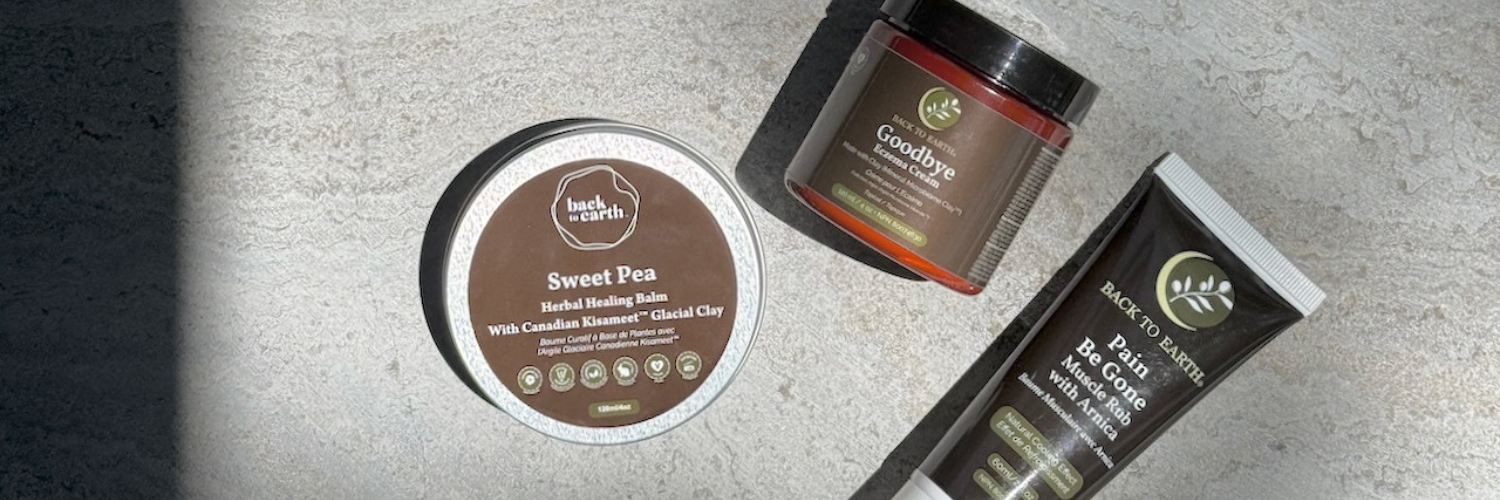Your Cart is Empty
Have you ever found yourself at the end of a long day, tired and depleted, an anxious energy coursing through your veins? Maybe you fell through the front door, dropping groceries, coat and briefcase on your kitchen floor, your never-ending to-do list wreaking havoc on your mind, conversations with your boss and co-workers fuelling embers of resentment. What would happen if, right in that moment, you pause, add your shoes to the pile, and make yourself a cup of herbal tea?
 Herbal tea can save the day in so many ways. The simple actions of boiling water and allowing the plants to steep encourages us to slow down and cherish a few moments of inner kindness. The penetrating aroma then seeps into our nostrils, bringing a sense of calm and a desire to curl up for a moment of comfort. As we wrap our fingers around the warm mug and take our first sips, we intuitively allow the natural healing power of plants to restore our health and liberate us from stress and tension.
Herbal tea can save the day in so many ways. The simple actions of boiling water and allowing the plants to steep encourages us to slow down and cherish a few moments of inner kindness. The penetrating aroma then seeps into our nostrils, bringing a sense of calm and a desire to curl up for a moment of comfort. As we wrap our fingers around the warm mug and take our first sips, we intuitively allow the natural healing power of plants to restore our health and liberate us from stress and tension.
Herbal tea is made from a variety of plants and plant parts (i.e. flowers, spices, herbs, fruits, leaves, stems, bark, and roots). Unlike black tea, green tea, and oolong tea, which are derived from the Camellia Sinensis plant, herbal tea is not technically classified as a tea. As such, it is often referred to as ‘tistanes’ and offers a wide array of medicinal benefits provided by the unique chemical composition of each plant. For example, many herbal teas are rich in antioxidants, minerals, and vitamins and are known to reduce inflammation, boost the immune system, calm the nervous system, and nourish our bodies on a cellular level.
The diversity of plants used in herbal tea is vast, and the variety of plants with medicinal properties known to reduce stress and support a relaxed, calm state of being is astounding. A few commonplace examples include Chamomile, Peppermint (a cross between watermint and spearmint), Lavender, Passion Flower, Holy Basil, Ginseng, Rooibos, Lemon Balm and Marshmallow Root. Many of us have heard these names and experienced how their herbal tea can save the day, but here are a few additional examples that may not sound familiar:

Other Names: Winter Cherry, Indian Ginseng
Plant Parts Used: Root, leaves
Medicinal Benefits: Known to lower inflammation, fight infection, and reduce fatigue, stress and nervous tension.

Other Names: Burrage
Plant Parts Used: Flowers, leaves
Medicinal Benefits: Supports endocrine and central nervous systems, soothes respiratory issues, and is known to significantly reduce stress and counteract exhaustion.

Other Names: Siberian Ginseng
Plant Parts Used: Root
Medicinal Benefits: Works to counteract stress, reduce inflammation, alleviate fatigue, and support the liver.

Other Names: Hen of the Woods, Ramshead, Sheepshead
Plant Parts Used: Entire fungus
Medicinal Benefits: In addition to being a natural cancer fighter, this mushroom is known to reduce stress by boosting overall immune function.

Other Names: Fairy Cups, Key to Heaven, Herb Peter, Horse Buckles, Key Flower
Plant Parts Used: Flowers, leaves, stems
Medicinal Benefits: Eases anxiety and tension, promotes calm, relieves headaches, and supports skin health.
Apart from visiting your favorite tea shop or purchasing pre-made herbal tea bags, options for making herbal tea include growing the plants yourself or purchasing herbs from a retailer. Many retailers, such ashealth food stores, ethnic markets, and online specialty shops (i.e. https://harmonicarts.ca orhttps://www.gaiagarden.com) offer a variety of choices, but proceed with caution. When purchasing, consider the quality of the plants (i.e. Are they healthy looking? Do they resemble a living plant? Do they have a strong fragrance?) and ask questions regarding the use of pesticides and how they were (will be) shipped. Herbal tea can save the day only if its natural, medicinal qualities are preserved!

Alternatively, you can grow herbs inside or outside your home. This provides the added benefit of enjoying their natural aroma for longer and having fresh ingredients for your teas. If you’re new to herb gardening, make sure to gather lots of information from local farmers and herb experts regarding the best way to start, how plants will interact with each other, ideal growing conditions, and best methods for extraction.
Herbal tea can save the day despite what the day may throw at us. It’s natural healing powers restore balance and reinstate inner harmony regardless of what’s happening in our external environment. So, the next time you feel stressed, anxious, or worn-out, consider making a therapeutic cup of herbal tea and allowing nature to revitalize your health from the outside in.
Written By: Zoë Tomichich
Comments will be approved before showing up.



